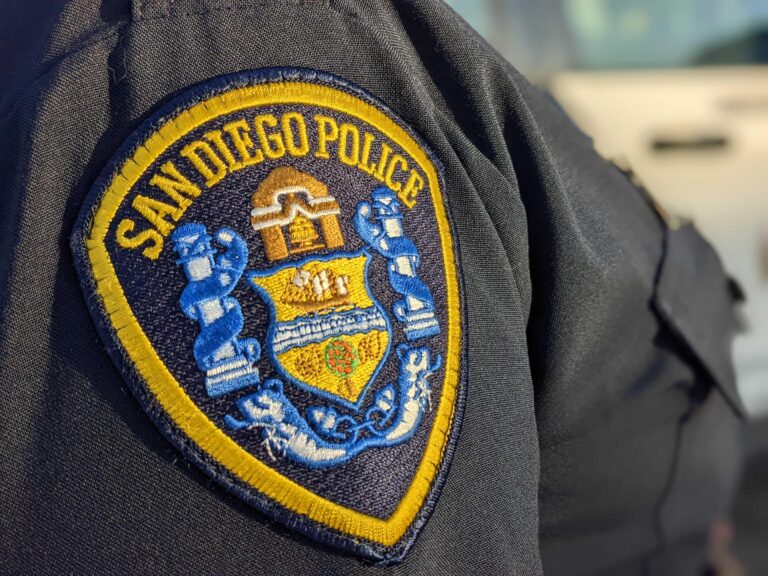San Diego County law enforcement agencies are participating in a nationwide data-sharing network that allows police departments across the United States to access and share information from license plate readers. This expanding use of automated license plate recognition (ALPR) technology, uncovered by inewsource, raises important questions about privacy, data security, and the scope of surveillance in everyday policing. As more jurisdictions integrate their ALPR data, concerns grow over how this information is collected, stored, and utilized beyond local borders.
San Diego County Police Collaborate with Nationwide License Plate Data Networks
San Diego County law enforcement agencies have integrated with national license plate recognition (LPR) networks to enhance public safety efforts. By sharing scanned plate data through these expansive databases, officers gain real-time access to millions of records across the United States. This collaboration bolsters the ability to track stolen vehicles, locate witnesses to crimes, and identify suspect movements beyond local jurisdictions, representing a critical tool in both routine patrols and complex investigations.
Key benefits of this data-sharing initiative include:
- Cross-jurisdictional coordination: Enables agencies across different states to work together quickly and efficiently.
- Accelerated investigation processes: Provides instant alerts on flagged vehicles, minimizing manual searches.
- Improved community safety: Helps recover stolen cars and locate missing persons with greater speed.
| Metric | San Diego County | National Network |
|---|---|---|
| Daily Plates Scanned | 15,000+ | Millions |
| Agencies Connected | 25 local | 500+ nationwide |
| Successful Recoveries (2023) | 1,200 vehicles | 18,000 vehicles |
Privacy Concerns Arise from Broad Sharing of Vehicle Information
The widespread dissemination of license plate data by San Diego County police to agencies across the United States has ignited a debate over individual privacy rights and the potential misuse of sensitive information. Critics argue that the expansive sharing network, with limited oversight and little transparency, could lead to unauthorized surveillance and tracking of innocent civilians. The data being exchanged goes beyond simple vehicle identification, encompassing real-time movements and historical location patterns that can inadvertently expose private behavior.
Privacy advocates emphasize key concerns, including:
- Lack of clear policies governing data access and retention periods.
- Potential for data breaches or leaks to non-law enforcement entities.
- Insufficient mechanisms for individuals to contest or request deletion of their information.
| Privacy Issue | Description |
|---|---|
| Data Retention | Records kept indefinitely without consent. |
| Oversharing | Data shared widely beyond original jurisdiction. |
| Accountability | Minimal public oversight or reporting requirements. |
Impact on Law Enforcement Efficiency and Cross-Jurisdictional Investigations
By sharing license plate data nationwide, San Diego County police have significantly enhanced law enforcement efficiency by enabling rapid access to vital vehicle information beyond local jurisdictions. This interconnected database allows officers to quickly identify stolen vehicles, wanted suspects, or vehicles linked to ongoing investigations, dramatically reducing the time and resources typically required for such queries. The real-time nature of the data exchange ensures that actionable intelligence is available instantly, improving response times and investigative outcomes.
Moreover, the collaboration fosters stronger cross-jurisdictional investigations. Crimes that span multiple counties or states, from drug trafficking to human trafficking, can now be tracked with greater coherence and accuracy. The integration supports:
- Seamless communication between local, state, and federal agencies
- Consolidated vehicle movement records that help uncover patterns and connections
- Enhanced accountability and traceability of law enforcement actions through a shared digital footprint
| Benefit | Impact |
|---|---|
| Faster Case Resolution | Reduced investigation time by up to 40% |
| Interagency Collaboration | Improved data sharing across 45+ states |
| Crime Pattern Recognition | More successful identification of multi-state crime networks |
Policy Recommendations for Balancing Security and Civil Liberties
To safeguard both public security and individual rights, policymakers should institute stringent oversight mechanisms for license plate data sharing. Implementing robust transparency requirements will ensure the public is informed about who accesses their data and for what purposes. Moreover, data sharing agreements must include clear limits on retention periods and usage scope, preventing indefinite storage and potential misuse. Mandated periodic audits by independent bodies can help verify compliance with privacy standards and uncover any unauthorized data exploitation.
Additionally, privacy protections must be embedded into the technology itself through privacy-by-design principles. This includes data anonymization techniques and secure transmission protocols to reduce the risk of unauthorized disclosure. To balance public safety with civil liberties, legislators should promote community involvement in shaping data policies, fostering trust and accountability. The following table outlines basic policy pillars and their intended impact:
| Policy Pillar | Purpose | Expected Outcome |
|---|---|---|
| Transparency | Inform public on data usage | Increased trust and awareness |
| Data Minimization | Limit data collection and retention | Reduced risk of abuse |
| Independent Oversight | Ensure compliance with policies | Enhanced accountability |
| Privacy-by-Design | Embed safeguards in technology | Protection against breaches |
Key Takeaways
As San Diego County law enforcement agencies continue to expand their use of license plate recognition technology and share data nationwide, questions surrounding privacy and oversight remain at the forefront of public discourse. While proponents argue that such data-sharing enhances crime-solving capabilities and public safety, critics caution against potential abuses and the need for transparent regulations. Moving forward, balancing technological advancement with civil liberties will be essential as authorities navigate this evolving landscape.




